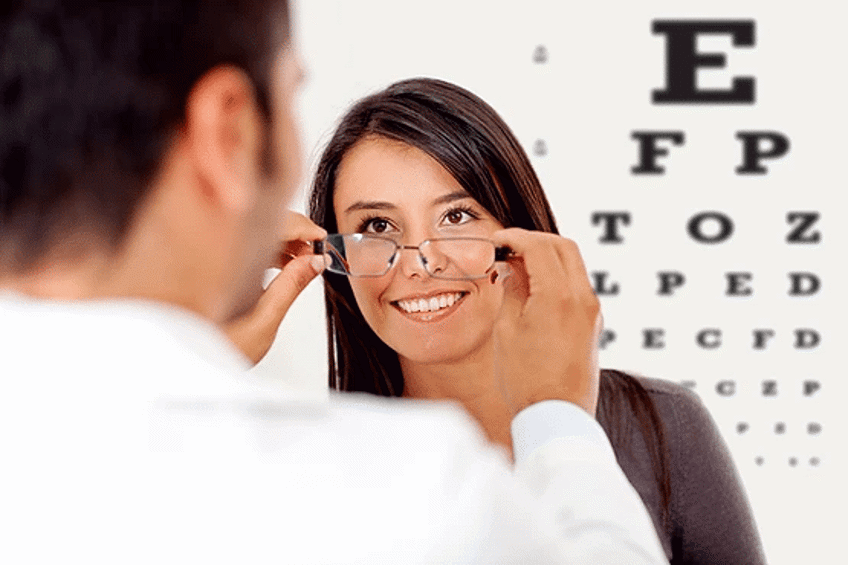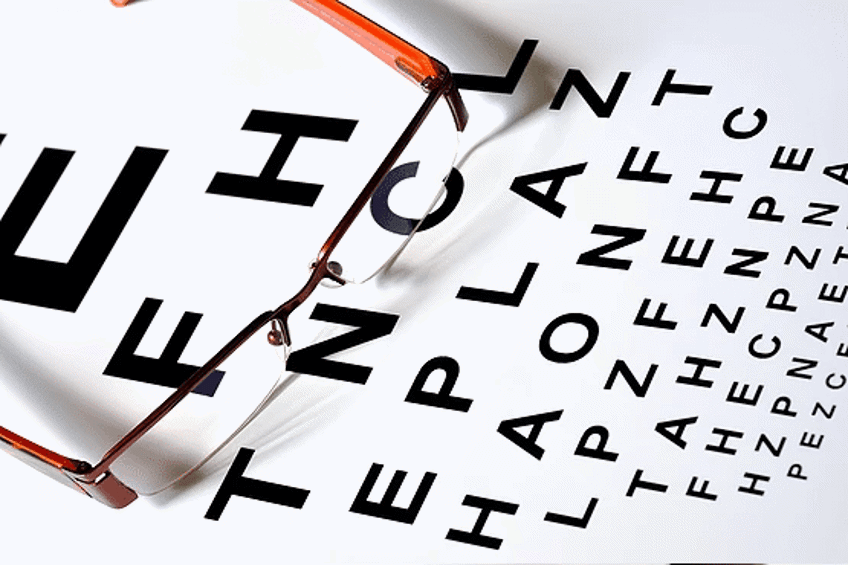We’ve all heard of the expression ‘20/20 vision’ before, but how many of us actually know what it means?
Is 20/20 vision the best you can have and how can you tell if you have it?
If you’ve ever had your eyes tested at the optician and had to read lines of letters printed on a chart on the wall then your optometrist will have been checking your 20/20 vision.
Let’s unpick what having 20/20 vision means and how it is measured.
What does 20/20 vision mean?
20/20 vision is the terminology used in the USA to describe a person’s visual acuity. In the UK, this is known as 6/6 vision.
This phrase relates to the distance at which you can read symbols on a chart. In the USA they measure distance in feet – twenty feet – and in the UK it is metres – six metres.
The chart used to determine your visual acuity is called a Snellen Chart. This chart displays letters of progressively smaller sizes and you optician will ask you to read the smallest letters you can see.
“Normal vision” is 20/20, which is the standard that an average person can see at twenty feet (or six metres).

What is visual acuity?
The clarity of your eyesight is known as your visual acuity. Visual acuity is your central vision that you use to see detail.
It is tested by using a Snellen Chart to measure how well you can identify letters (or sometimes numbers) on a chart on the wall of your optometrist’s room.
Your visual acuity is determined by factions – i.e. 20/20, 20/40 or 20/60.
What is the best vision you can have?
It’s a commonly held belief that 20/20 vision is the best you can have. However, 20/20 vision is not perfect and people can actually have sharper than average vision.
For example, if you have 20/15 vision it means that you can see a line on the eye chart at 20 feet that an average person can only see when they 15 feet away.
If you have young, healthy eyes, it may be quite likely that you can identify these small letters on the Snellen chart.
Can you have 20/20 vision and still need glasses?
Visual acuity testing only measures one aspect of your vision, so it is quite common that someone with 20/20 vision may still need to wear glasses.
For example, as people enter middle age they may find that it becomes increasingly difficult to focus on reading or tasks that are close to them even though they have 20/20 vision. This is because our eyes commonly lose their ability to focus on nearsighted objects as we age – a condition known as presbyopia.
Other reasons why you can have 202/20 vision but still need to wear glasses may be health related. If you have diabetes or high blood pressure you may need to wear glasses even though you have 20/20 vision.
An eye examination checks more than your eyesight, and a regular visit to your optician can monitor the health of your eyes.

What is the worst vision you can have?
At the top of the Snellen chart is a letter ‘E’, which represents 20/200 (or 6/60 in the UK) visual acuity. If this is the smallest letter you can see with corrective lenses then you are considered legally blind. It means you can see at six metres what someone with standard vision could see from 60 metres away.
To determine whether you meet the criteria for being certified as either severely sight impaired (blind) or sight impaired (partially sighted) an eye specialist called a consultant ophthalmologist will carry out a series of tests.
They will use a Snellen chart to test your visual acuity and carry out a visual field test to check your peripheral vision – how much you can see around the edges of your vision.
This article from the Royal National Institute of Blind People (RNIB) has more information about sight loss certification. If you have any concerns about your vision or a change in eyesight, contact your local optician for professional advice and support.
How to get 20/20 vision
There is no specific method for improving your vision without the use of corrective measures like prescription glasses or contact lenses such as Ortho-K. In some cases, laser eye surgery may be an option.
Healthier lifestyle choices will boost your overall health and therefore benefit your eyes, such as:
- Eat well
- Stop smoking
- Reduce eye strain by taking screen breaks
- Protect your eyes from UV light.
There are many myths out there about improving your eyesight without glasses or contacts, such as exercises for your eyes or eating lots of carrots. Most of these techniques have not been proven effective.
The best things you can do for your eyesight is to have regular eye examinations at your local optician who will monitor your vision and eye health.





